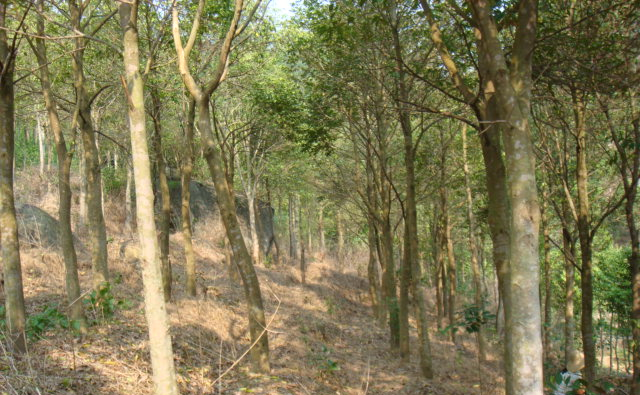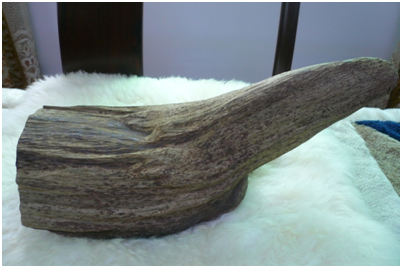
From the People's Daily app.
And this is Story in the Story.
The coastal city of Maoming in South China's Guangdong province is planning to strengthen the development of the agarwood industry in its Dianbai district by expanding incense tree plantations and improving the tree's industrial chain.
The incense tree is an evergreen species endemic to China, especially South China.
The species, categorized as vulnerable by the International Union for Conservation of Nature and listed as a Wild Plant under State Protection (Category II) in China owing to a decline in the wild population, is a major source of agarwood, a valuable aromatic used as incense, perfume and medicine.
The city aims to expand the tree plantation area in the district to 120,000 mu (8,000 hectares) from the current 100,000 mu while expanding demonstration plantation bases on par with good agricultural practices from the present 35,000 mu to 50,000 mu by 2023.
Today’s Story in the Story looks at factors such as fragrance, quality, shape and color that also provide the basis for appreciating agarwood.

An incense tree plantation base in the Dianbai district of Maoming, South China's Guangdong province. (Photo: China Daily)
Two plantation bases for incense tree seedlings of improved strains are expected to take shape in 2020, to ensure an annual supply of 3 million improved seedlings.
Huang Xiaomeng, director of Dianbai district's publicity department, said the district government will make greater efforts to help local firms build up their brands and turn the district into the nation's base for agarwood production, as well as a regional agarwood trade center covering the west of Guangdong province, Hainan province and the Guangxi Zhuang autonomous region.
Dianbai district enjoys a topography and climate suitable for incense tree plantation and has long been a tradition for the locals to get involved in the sector, said Shao Yuxiong, general manager of Maoming Hetai Agarwood Plantation Co, one of the leading agarwood brands in the district.
According to Shao, Dianbai has a history of over 1,000 years growing incense trees, processing and trading agarwood products.
"The industrial status quo and rich experience collecting and processing agarwood products and well-developed industrial chains have laid a good foundation for greater development of the sector," he noted.
Dianbai district alone has more than 10,000 people involved in the agarwood industry, with a plantation area covering over 100,000 mu, local statistics indicate.

Agarwood in Maoming. (Photo: China Daily)
The sector generates an annual industrial output of more than 1.5 billion yuan and industrial profits of about 300 million yuan, with products finding great popularity across the nation as well as in Southeast Asian countries.
It is also produced in other Asian countries including the Philippines, Indonesia, Malaysia and Thailand, as well as India.
During the past 30 years, there has been a surge in demand for agarwood worldwide.
As early as the Tang and Song Dynasties, the incense has been widely cultivated in the Dongguan area, where it became a local specialty. Consequently, agarwood has also been called “Guan Xiang,” which means the agarwood of Dongguan.
According to textual research on medicinal history, the evolution of the variety, and the origin of agar-wood in “Nanyao” (the traditional medicine in South China), the sources of medicinal agarwood have been grouped into native agarwood and imported agarwood since the time of Ancient China.
It takes tens to hundreds of years for agarwood to be formed. In addition, in natural environment, only a small percentage of agarwood trees produces agarwood. Hence, agarwood is rare and precious.
Agarwood enjoys the title of “the King of Incenses.”
Regarded as the most precious kind of wood in the world, it is indeed an extremely rare natural resource.
(Produced by Nancy Yan Xu, Brian Lowe, Lance Crayon and Paris Yelu Xu. Music by: bensound.com. Text from China Daily.)


